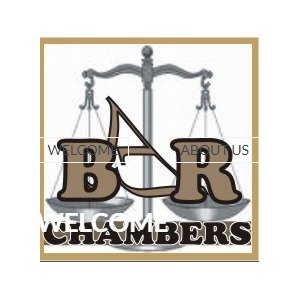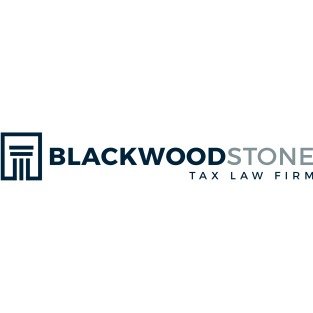Best Housing, Construction & Development Lawyers in Nigeria
Share your needs with us, get contacted by law firms.
Free. Takes 2 min.
Free Guide to Hiring a Real Estate Lawyer
Or refine your search by selecting a city:
List of the best lawyers in Nigeria
Legal guides written by Adeola Oyinlade & Co:
- Procedure and Requirements for Work Permit and Visas in Nigeria
- The Step-By-Step Procedure of How to Apply for Microfinance Bank License Online in Nigeria
- How to Ensure the Smooth Recognition and Enforcement of Foreign Judgments in Nigeria
About Housing, Construction & Development Law in Nigeria
Housing, Construction & Development Law in Nigeria encompasses the various regulations and legal frameworks governing the construction, development, acquisition, and management of real estate and infrastructure. The sector is critical due to Nigeria's growing population and urbanization, necessitating efficient urban planning and sustainable building practices. Key stakeholders include property developers, construction companies, landowners, investors, and government bodies, each playing vital roles in shaping the housing landscape. Compliance with legal standards ensures safety, protects investments, and advances sustainable development goals.
Why You May Need a Lawyer
Engaging a lawyer in Housing, Construction & Development is often essential for several reasons:
- Land Acquisition: Understanding the terms and conditions of land purchase agreements, verifying land titles, and handling encroachments require legal expertise.
- Development Permits: Navigating the obtaining of necessary approvals from regulatory authorities can be complex.
- Dispute Resolution: Resolving construction disputes, contractor disagreements, and tenant-landlord issues benefit from legal support.
- Contract Drafting and Review: Construction projects involve multiple contracts; lawyers help in drafting and reviewing these agreements to safeguard interests.
- Compliance with Safety Regulations: A lawyer ensures adherence to safety and environmental regulations, avoiding legal ramifications.
Local Laws Overview
Nigerian housing, construction, and development laws comprise federal, state, and local regulations, often underpinned by statutory regulations:
- Land Use Act of 1978: Governs land ownership and administration, centralizing control under state governors.
- National Building Code: Sets out standards for construction practices to ensure public safety and quality.
- Environmental Impact Assessment Act: Requires developers to consider environmental impacts before project approval.
- Urban and Regional Planning Act: Regulates urban planning to achieve orderly land use and development.
- Residential Tenancy Laws: State-specific laws usually govern landlord-tenant relationships and rental agreements.
Frequently Asked Questions
What is the process for acquiring land in Nigeria?
The process typically involves due diligence, obtaining a Certificate of Occupancy, and ensuring compliance with local land use regulations. Engaging a lawyer is advisable for legal scrutiny and title verification.
How can I secure the necessary permits for a construction project?
Start by applying to the relevant state urban development authority. A lawyer can help ensure that you meet all legal requirements and navigate bureaucratic processes smoothly.
What are the common disputes in construction projects?
Disputes often arise from contractual terms, delays, workmanship quality, payment issues, and variations in contract scope. Legal intervention is crucial in resolving these disputes.
How can I verify the title of a property?
A land search at the state land registry is conducted to ascertain the title's authenticity. It is prudent to involve a lawyer to interpret and verify the records.
What should I consider when drafting construction contracts?
Consider clarity in project scope, timeline, payment terms, dispute resolution, roles and responsibilities, and force majeure situations. Legal input ensures comprehensive coverage.
What is the role of the National Building Code?
The National Building Code provides guidelines on building safety, design standards, and construction methodologies aimed at safeguarding lives and property.
Can non-citizens own land in Nigeria?
Non-citizens can acquire land through a leasehold or governor's consent, subject to obtaining the necessary permits and adhering to the Land Use Act's provisions.
How are tenancy agreements regulated?
Tenancy agreements are primarily governed by state-specific tenancy laws which outline rights and obligations of landlords and tenants, rent control, and eviction procedures.
What legal recourse is available for construction defects?
Legal recourse for construction defects may involve filing a claim for breach of contract or warranty. Effective negotiation or litigation is often required, handled best by a lawyer.
How is urban planning regulated in Nigeria?
Urban and Regional Planning Acts govern urban development, ensuring sustainable land use and infrastructure development across states.
Additional Resources
Several resources can provide further assistance and guidance:
- Federal Ministry of Works and Housing: Oversees national housing policies and implementation.
- Nigerian Institute of Architects: Offers resources related to building standards and design.
- Nigerian British Chamber of Commerce: Provides insights and networking opportunities in property investment.
- Nigerian Institution of Estate Surveyors and Valuers (NIESV): A body that offers guidance and standards for property valuation and management.
Next Steps
If you need legal assistance in Housing, Construction & Development:
- Consult a Specialized Lawyer: Seek out lawyers experienced in real estate and construction law for personalized legal advice.
- Prepare Relevant Documents: Gather all pertinent property documents, permits, and contracts for the lawyer’s review.
- Attend Initial Consultation: Discuss your situation in detail and explore legal strategy options.
- Determine a Course of Action: Based on legal advice, decide whether negotiation, mediation, or litigation is the most suitable path.
Lawzana helps you find the best lawyers and law firms in Nigeria through a curated and pre-screened list of qualified legal professionals. Our platform offers rankings and detailed profiles of attorneys and law firms, allowing you to compare based on practice areas, including Housing, Construction & Development, experience, and client feedback.
Each profile includes a description of the firm's areas of practice, client reviews, team members and partners, year of establishment, spoken languages, office locations, contact information, social media presence, and any published articles or resources. Most firms on our platform speak English and are experienced in both local and international legal matters.
Get a quote from top-rated law firms in Nigeria — quickly, securely, and without unnecessary hassle.
Disclaimer:
The information provided on this page is for general informational purposes only and does not constitute legal advice. While we strive to ensure the accuracy and relevance of the content, legal information may change over time, and interpretations of the law can vary. You should always consult with a qualified legal professional for advice specific to your situation.
We disclaim all liability for actions taken or not taken based on the content of this page. If you believe any information is incorrect or outdated, please contact us, and we will review and update it where appropriate.
Browse housing, construction & development law firms by city in Nigeria
Refine your search by selecting a city.

















